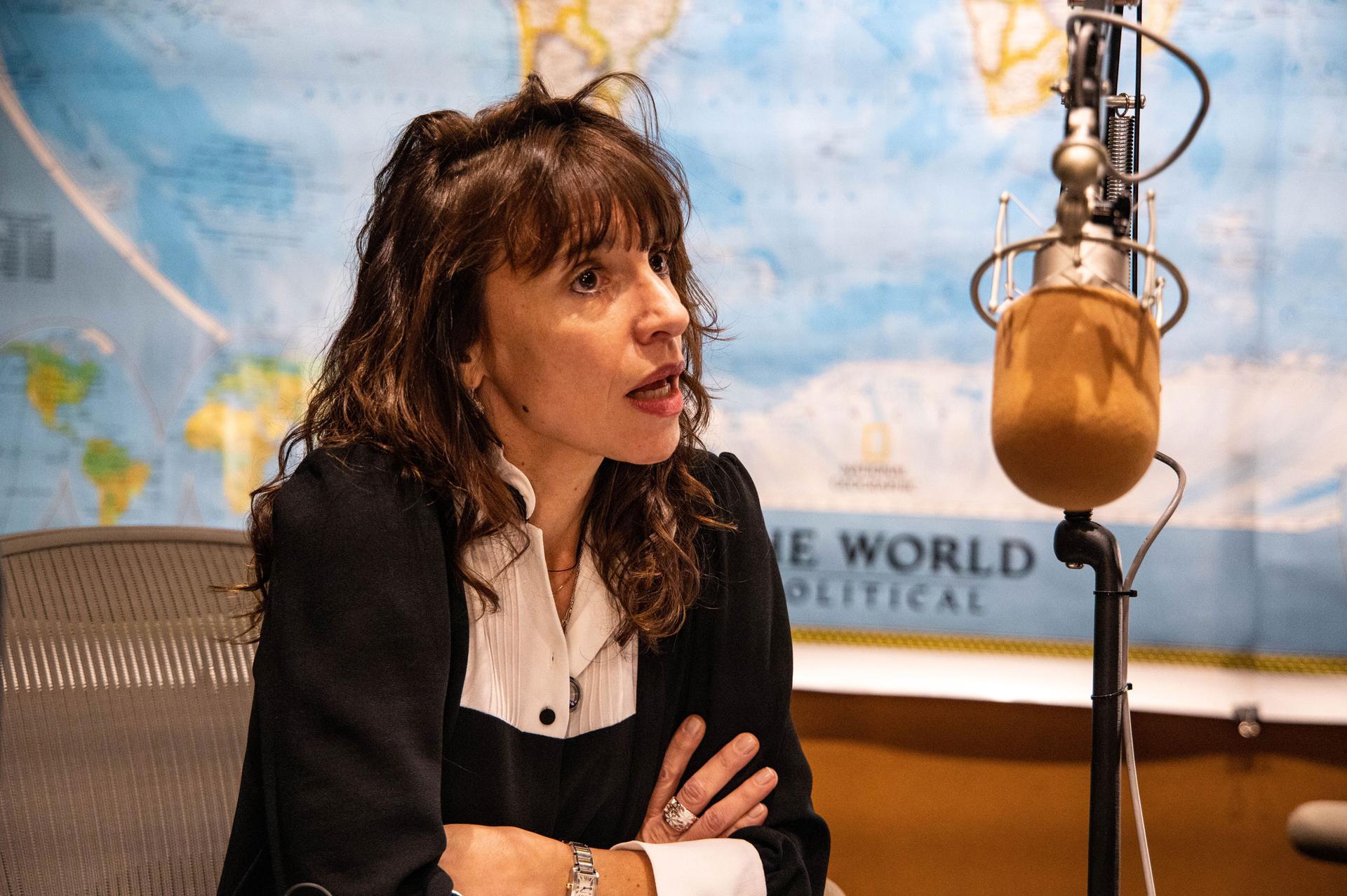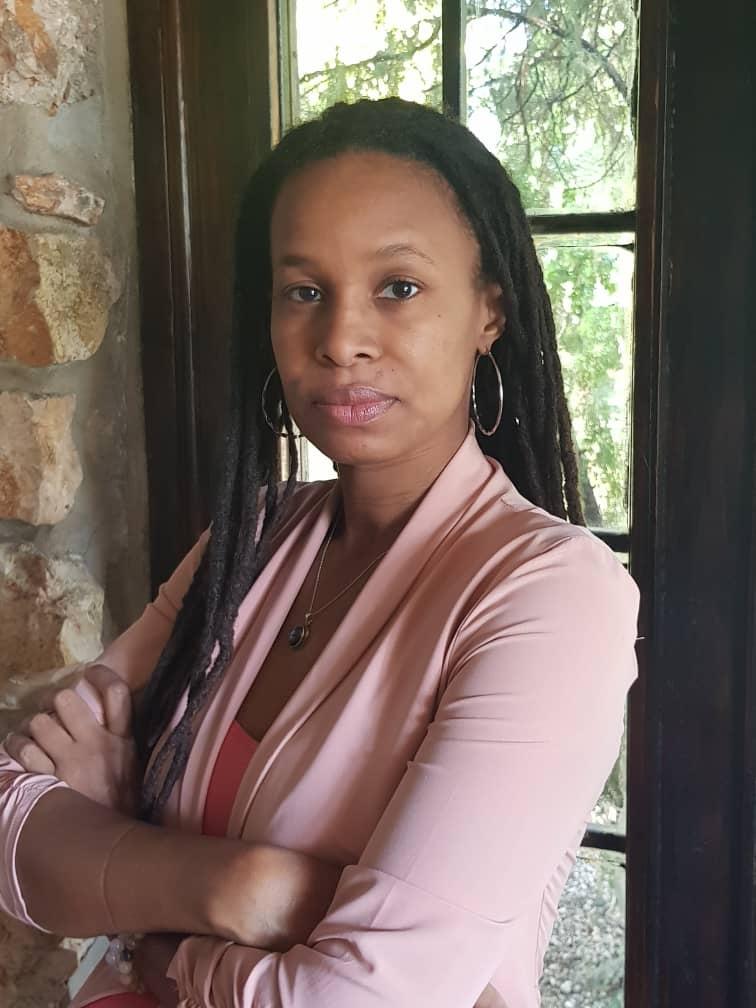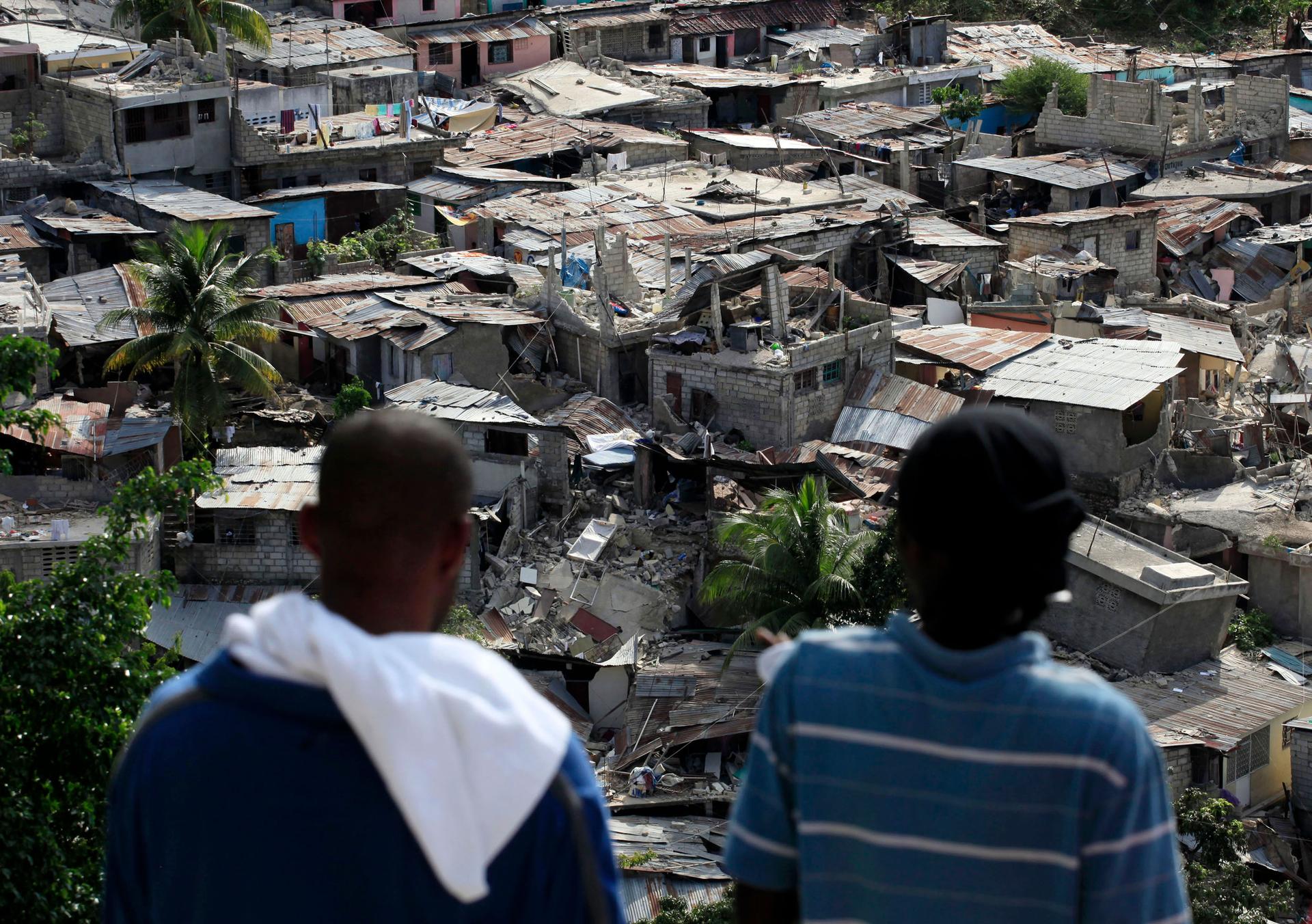10 years later, Haiti earthquake survivor reflects on broken promises and resilience
Residents look at destroyed buildings after a major earthquake hit Port-au-Prince, Haiti, Jan. 13, 2010. The quake demolished schools, hospitals, houses and hillside shanties across the crowded and improverished capital.
Haiti’s calamitous earthquake a decade ago leveled much of the capital, killed tens of thousands and left some 1.5 million people homeless.
The 7.0-magnitude earthquake hit the poorest country in the Americas on Jan. 12, 2010, destroying much of Port-au-Prince. Estimates of the number of dead vary from 46,000 to more than 300,000.
Billions of dollars were pledged from the international community to help rebuild Haiti. Jehane Sedky has spent the last decade co-leading the UN special adviser’s office on community-based health and aid delivery to Haiti. She says that while there were good intentions, very little of the pledged funds actually got to Haiti — instead, it stayed in the donor countries.

“The way this works is that donors, when they contribute funding to a particular country, they mostly give to their own NGO,” Sedky told The World. “So, while the money is for a particular country, in our analysis of aid to Haiti, of the $6.4 billion that eventually was what we call disbursed, which means money out of the bank. Only 10% of that stayed in Haiti, meaning was used to hire locally, create jobs, support the government, pay salaries. The rest of the funding essentially never got to Haiti.”
And tracking the funds dedicated to Haiti is complex. “What we learned is that there is no system in place to track money that has been pledged to a poor country after a crisis — that does not exist. Our office was the only one doing it and still is,” Sedky said. “And my sense is — I don’t want to be cynical, but my sense is there’s no interest in doing so. What’s really needed is to reimagine how aid is delivered.”

Velina Charlier was 29 years old at the time. She lost many friends. In the years since, Charlier has become an anti-corruption activist and petrochallenger. She spoke with The World’s Carol Hills about the decade since the devastating earthquake.
Carol Hills: Velina, take us back 10 years ago to the earthquake. I wonder how vivid are those memories for you still?
Velina Charlier: They’re still very vivid. It’s memories that you live with every day. Ten years ago, when the earthquake happened, I was at home and my baby was 28 days old at the time, my first born. Everything started falling down, you know, glasses breaking and chaos started.
Related: With no Carnival, Haiti’s musicians lose more than their stage
How are your friends and extended family impacted by the earthquake?
I lost a lot of friends at the Caribbean Supermarket because Caribbean Supermarket was leveled all the way to the ground. But the one that really hurt most is my cousin passing away. And he passed at his house. He was very young, fresh out of college. It was his first day at his new job, and we all think that he probably made it home and then went to lay on his bed and rest and the earthquake happened. But next to that, it was also seeing how many lives and dreams were destroyed in a couple of seconds.
Related: Why it’s gotten harder for LGBT people in Haiti since the 2010 earthquake
I know at the time of the earthquake 10 years ago, you were working for a cellular company and that took you around Haiti after the quake to kind of help rebuild the cellular stores and help get the country going again. What did you witness after the quake as you traveled around Haiti?
Chaos. It’s not only buildings that had collapsed and people who had died, but there was also a lot of hopelessness because things that you would see every day — moms no longer talking, only looking at pictures or kids completely lost, small children because they lost their entire families who didn’t really know where to go, what to do. Although there was lots of sadness, there was also a lot of hope because there were so many people coming in, they would be rebuilding and rebuilding better.
Related: Haiti protests summon spirit of the Haitian Revolution
It’s been 10 years since the quake. I know a lot has changed in Haiti since then, but how does today’s situation compare?
I don’t really like to compare the earthquake with today. And I’m going to explain why. The earthquake was a natural disaster. It was a trauma, something that nobody could have predicted. Well, what we are seeing 10 years later is that nothing’s been done, from what we as human beings could have done to prevent that much damage from happening if ever there was an earthquake. Nothing has been rebuilt. We still have been using tent cities. We still have people living in tent cities. And these people have been forgotten. Nobody’s thinking about them. Ten years later, we’re in a situation where there’s a humanitarian crisis in Haiti. There’s close to half of the population that was living with less than $5 a day. And even more than that are living with no food and all the dreams that I had at the time, I feel that today they’re all broken promises.
Related: Fault Line: Aid, Politics and Blame in Post-Quake Haiti
Ten years ago at the time of the earthquake you were 29. You had a newborn. Today in 2020, 10 years on, where do you find hope?
Funny enough, 10 years later, I’m pregnant with my third girl. So, I find hope in my people. I believe in Haiti. I believe in Haitians. I believe that my wellness, me being good and feeling good about myself also means that other people around me are feeling good. I believe that human beings should be allowed to live like decent human beings. So, this is where I find all of my hope and this is where I find the resilience to continue fighting in Haiti, to impact lives.
This interview has been edited and condensed for clarity. Reuters contributed reporting.
We rely on support from listeners and readers like you to keep our stories free and accessible to all. Monthly gifts are particularly meaningful because they help us plan ahead and concentrate on the stories that matter. Will you consider donating $10/month, so we can continue bringing you The World? Donations made between now and Dec. 31 will be matched 1:1. Thanks for investing in our work!
